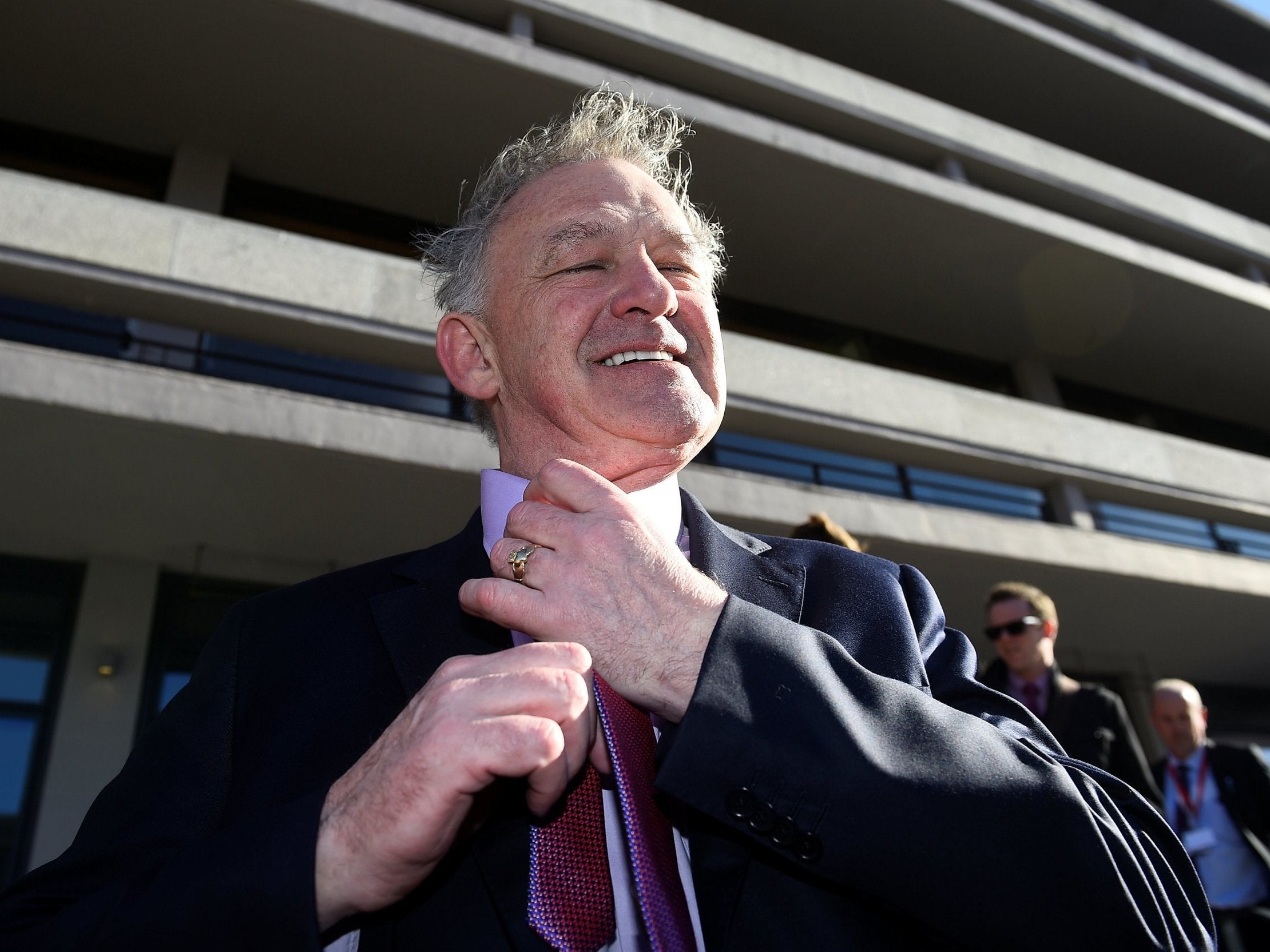Michael D Higgins wins second term as Irish president with businessman Peter Casey surprise runner up
A victory for Higgins had been expected but the success of controversial Casey at the expense of Sinn Fein and other independents has come as a surprise
Your support helps us to tell the story
From reproductive rights to climate change to Big Tech, The Independent is on the ground when the story is developing. Whether it's investigating the financials of Elon Musk's pro-Trump PAC or producing our latest documentary, 'The A Word', which shines a light on the American women fighting for reproductive rights, we know how important it is to parse out the facts from the messaging.
At such a critical moment in US history, we need reporters on the ground. Your donation allows us to keep sending journalists to speak to both sides of the story.
The Independent is trusted by Americans across the entire political spectrum. And unlike many other quality news outlets, we choose not to lock Americans out of our reporting and analysis with paywalls. We believe quality journalism should be available to everyone, paid for by those who can afford it.
Your support makes all the difference.Michael D Higgins has been re-elected as president of Ireland, after winning 56 per cent of the vote in Friday’s election.
Mr Higgins, who has served as the country’s head of state since 2011, will now keep the top job for another seven years.
He was congratulated on Twitter by the Irish prime minister Leo Varadkar, who wrote, “Really happy that you will continue to be our President for the next 7 years.”
While his victory was expected, he has won by a smaller majority than the polls predicted. Surveys in recent weeks suggested he enjoyed the support of around two-thirds of the electorate.
But the real surprise of this election result has been the performance of runner up Peter Casey, who took 23.1 per cent of the vote.
Mr Casey is a Derry-born businessman now based in the US, who has starred as an investor on the Irish version of Dragon’s Den. He was an outsider candidate polling just 1 per cent in polls published last week.
However, his campaign took a turn at the weekend after he made controversial comments about the travelling community in Ireland, who he claimed were “basically people camping in someone else’s land”.
While it initially appeared the comments might derail his campaign, instead it appears to have drawn a fifth of voters to his camp. In the past, Mr Casey has also criticised Ireland as a welfare state, suggested the country should abandon its historic neutrality, and has also criticised its relationship with the EU.

Among the losers in this election are Sinn Fein, who were hoping that their candidate Liadh Ni Riada could provide a fresh alternative to Mr Higgins, but she came in third place.
The party has failed to match the 13 per cent of the vote earned by Martin McGuinness at the last election, with early results indicating many of the party’s supporters voted for Mr Higgins, or Mr Casey.
The result will also be disappointing for Sean Gallagher, another businessman who came second in the 2011 election, but has now seen his support base collapse. The other two candidates, Joan Freeman and Gavin Duffy, earned low results, predicted by the polls.
Such is Mr Higgins’ popularity in Ireland – for a while it seemed he might be re-elected unopposed – as Mary McAleese was in 2004. But polls showed that while the majority of people wanted him back for a second term, most people also wanted to see a campaign.
Mr Higgins stood with the support of the main Fine Gael and Fianna Fail parties, and commanded support across the political spectrum.
A veteran Irish politician, Mr Higgins was a lifelong member of the Labour party. He has served as a mayor, a senator, a TD in the Irish parliament, and was minister for culture in the 1990s. During this period he helped set up the first Irish language TV station TG4, being a fluent speaker himself. He also has a background in academia and is respected as a published poet.
A natural statesman, Mr Higgins has been praised for his ability to reach out across all sections of Irish society, his handling of difficult anniversaries in the past decade, and for how he represents Ireland on the world stage.
He has achieved a rare feat in Ireland by becoming a somewhat beloved politician – something which is easier to carry in the largely ceremonial role of the presidency, which is above party politics.
But he did come in for criticism during this campaign – particularly from Mr Casey – over the cost of the presidency, his use of expenses and how transparent this was to the taxpayer. None of this damaged Mr Higgins’ reputation personally, but it is likely he will push for some reform of the office during this second term.
The Irish presidency is a largely ceremonial role, but the office holder does occupy a unique space which can both set and respond to the mood of the nation.

Join our commenting forum
Join thought-provoking conversations, follow other Independent readers and see their replies
Comments